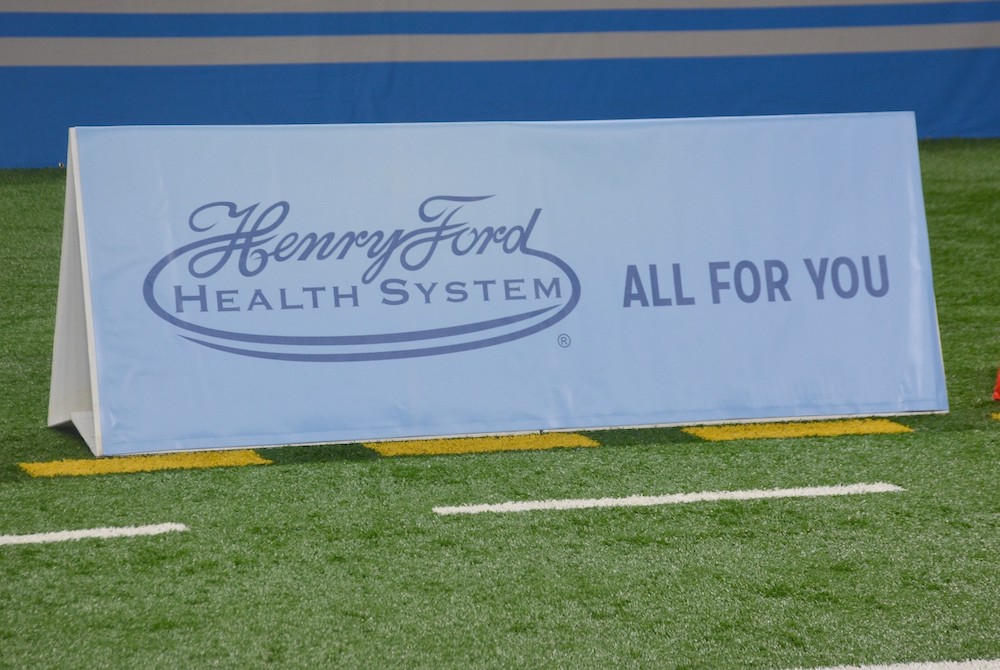
The COVID-19 Pandemic & Your Teen's Mental Health
April 13, 2021
Even in normal times, a teenager often feels emotional, vulnerable, insecure and confused.
But when a global pandemic turns their world upside down, many teens feel completely overwhelmed. They are challenged with social distancing, remote learning and the cancellation of important events and activities, like school sports, homecoming, prom and graduation. They also may be worried about the health of loved ones.
How to Tell if It's Anxiety or Depression
Aurif Abedi, M.D., a child and adolescent psychiatrist with Henry Ford Allegiance Health, advises parents to look for changes in your teen’s behavior. Don't ignore signs of anxiety and depression, such as:
► Experiencing mood swings, agitation, frequent irritability or outbursts of intense anger.
► Being uninterested in connecting with friends or family – avoiding interactions and not texting, gaming or video chatting with friends.
► Losing interest in things they normally enjoy, like music, drawing or other hobbies.
► Having difficulty sleeping or sleeping more than usual.
► Losing their appetite or eating more frequently, often resulting in weight fluctuations.
► Not showering regularly, and not making an effort with how they look.
► Struggling with school: having attendance problems, not finishing assignments, or seeing a drop in grades.
► Engaging in risky behavior, including drug or alcohol use.
How to Help Your Anxious or Depressed Teen
Gently tell your child you’ve noticed a change in their behavior and give examples. Help them feel safe to tell you how they feel. Let them know you want to help and encourage them to ask questions.
Contact your teen’s doctor about your concerns. The doctor can complete an assessment and make recommendations, including letting you know if counseling seems appropriate.
If There is a Risk of Suicide
Thoughts of suicide, desperation or hopelessness should always be taken seriously. Make sure your home is safe for your child by locking up medications and weapons and getting help for your teen.
Contact your child’s doctor, call the National Suicide Prevention Lifeline at 1-800-273-8255, text TALK to the Crisis Line at 741741, or take your child to the nearest emergency department for an assessment. If your teen is in immediate danger of serious self-harm, call 9-1-1 immediately.
Learn about the wide range of behavioral health treatment options available at Henry Ford Health System.
Dr. Aurif Abedi, is a physician who is board-certified in psychiatry as well as child and adolescent psychiatry, and sees patients at Henry Ford Allegiance Health in Jackson.

How Can COVID-19 Impact Student-Athletes' Return-To-Play?
October 5, 2021
COVID-19 And Student Athletes: How Can the Virus Impact Return-To-Play?
The end of summer marked the start of the school year, and for student athletes, the kickoff of the fall sports season. For many, COVID-19 sidelined practices, team gatherings and games to some extent last year. And while there is still hope that young athletes will have more opportunity to play this season despite rising cases of the Delta variant, there are other factors causing concern among athletes and their parents.
According to Ramsey Shehab, M.D., a sports medicine physician for Henry Ford Health System, many athletes are concerned about reaching peak performance after a long time off or after they have recovered from a COVID diagnosis. He reassures students that the feeling of exhaustion or even underperformance compared to past years is to be expected when you take time off or after fighting an illness.
“When you are infected with a virus, it taxes your immune system, and all of your energy goes towards fighting off that infection,” says Dr. Shehab. “You’ll likely feel weak and more tired during this time.”
Fortunately, as the body begins to recover, you’ll start to feel more like yourself again as you get your energy back. But this doesn’t mean that you won’t lose some of that fitness and endurance you’ve built up.
“It only takes about a week of deconditioning to set you back from peak athletic abilities,” says Dr. Shehab. “It is completely expected that your body will need time to get back to performing at your best.”
Playing Sports After Recovering From COVID-19
The unfortunate news: COVID-19 affects people differently in the long term. Some people are able to recover and get back to their routine without delay, whereas others see further complications months after an infection.
Akshay Khandelwal, M.D., a cardiologist with Henry Ford Health System, breaks down some of the more serious findings regarding COVID-19 and your heart health.
“With COVID-19, there is a risk of direct injury like heart failure or an arrhythmia due to the stress your body is under while fighting off the virus,” says Dr. Khandelwal. “As a result, having the virus can cause inflammation of the heart, a condition called myocarditis.”
Because of this, talking to your doctor before returning to a sport is a must if you had COVID or are recovering from the virus. It is important to make sure there are no systemic changes to your body such as overall heart health and lung function. They will be able to rule out any long-term effects that could impact your fitness output.
Expert-Recommended Steps for Return-To-Play
As you get back to your game, both experts share their insights for a healthy recovery:
1. Take quarantine periods seriously. If you are sick, even if you don’t necessarily feel sick, make sure you are taking time to rest and recover properly. “Don’t try to push or overexert yourself,” says Dr. Khandelwal. “It could prolong your recovery.”
2. Get back to training slowly. “Start using low-exertion activities to get your body used to working out again,” says Dr. Shehab. “Once you are able to handle each activity, you can push ahead to something more challenging.” Realistically, it may take a couple of weeks before you are able to get back to your peak.
3. Listen to your body. If workouts seem increasingly difficult, talk with your doctor or trainer before pushing yourself further. You can also help your body recover by making healthy, thoughtful choices:
► Get plenty of sleep
► Warm up and cool down before and after workouts
► Stay hydrated
► Take breaks when you’re tired
► Practice injury prevention
► Make smart food choices
4. Get vaccinated. If medical or religious reasons, or age requirements aren’t stopping you from getting the vaccine, consider getting the shot for yourself and those around you. The Delta variant is highly transmittable, meaning that, it is much easier for it to spread to teammates and family members than the original strain of the virus.
To learn more about the COVID-19 vaccine, visit our Vaccine FAQs page.
Talk to your doctor to learn more about safely returning to a sport. To find a doctor, visit henryford.com or call 1-800-436-7936.
Dr. Ramsey Shehab is the deputy chief of Sports Medicine at Henry Ford Health System. He sees patients at the Henry Ford Center for Athletic Medicine and Henry Ford Medical Center - Bloomfield Township.
Dr. Akshay Khandelwal is an interventional cardiologist who sees patients at Henry Ford Medical Center – Second Avenue.


